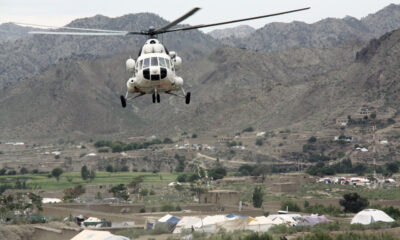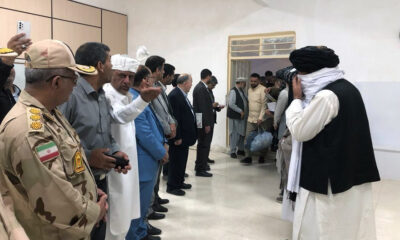Latest News
UN in Afghanistan ‘concerned’ about new morality law
The text has worrying impacts on religious freedoms by ignoring the full diversity of Afghanistan’s religious communities, and places more restrictions that will impact the work of journalists and media, UNAMA stated.
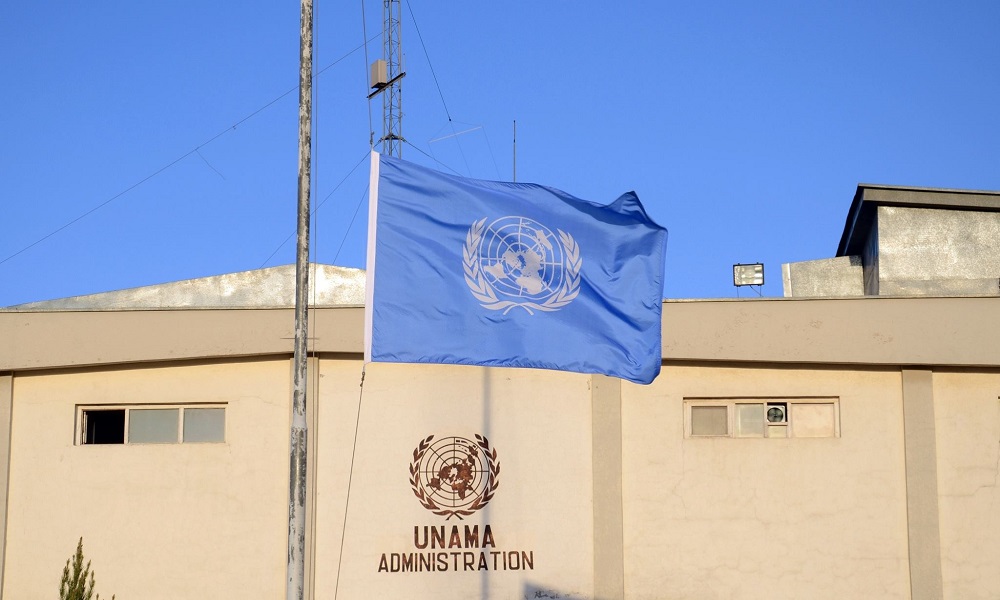
The United Nations Assistance Mission in Afghanistan (UNAMA) said on Sunday it is concerned by the promotion of a morality law by the Islamic Emirate this week that had wide-ranging and far-reaching restrictions on personal conduct and one that provides morality police with broad powers of enforcement.
This week the Islamic Emirate announced the ratification of a “Law on the Promotion of Virtue and the Prevention of Vice”, with 35 articles detailing significant restrictions on the Afghan population with arbitrary and potentially severe enforcement mechanisms, UNAMA said in a statement.
“It is a distressing vision for Afghanistan’s future, where moral inspectors have discretionary powers to threaten and detain anyone based on broad and sometimes vague lists of infractions,” said Roza Otunbayeva, the Special Representative of the Secretary-General and head of UNAMA.
“It extends the already intolerable restrictions on the rights of Afghan women and girls, with even the sound of a female voice outside the home apparently deemed a moral violation,” she said.
The text has worrying impacts on religious freedoms by ignoring the full diversity of Afghanistan’s religious communities, and places more restrictions that will impact the work of journalists and media, UNAMA stated.
“After decades of war and in the midst of a terrible humanitarian crisis, the Afghan people deserve much better than being threatened or jailed if they happen to be late for prayers, glance at a member of the opposite sex who is not a family member, or possess a photo of a loved one,” Otunbayeva said.
“The international community has been seeking, in good faith, to constructively engage with the de facto authorities. The world wants to see Afghanistan on the path of peace and prosperity, where all Afghans have a stake in their future, are citizens with rights and not just subjects to be disciplined. Further restricting the rights of the Afghan people and holding them in constant fear will make achieving this goal even harder,” Otunbayeva said.
UNAMA stated it is studying the newly ratified law and its implications for the Afghan people, as well as its potential impact on United Nations and other vital humanitarian assistance for the country.
UNAMA is also seeking clarification from the Islamic Emirate on a number of articles and on plans for enforcement.
Based on its initial review, two articles in the law do constitute positive steps, namely outlawing the mistreatment of orphans as well as “prohibiting the practice of Bacha Bazi, a pedophilic practice of using young boys for personal entertainment and sexual abuse,” the statement read.
UNAMA however said it reiterates that Afghanistan as a state remains party to seven key international human rights instruments. “Security Council Resolution 2681 (2023) also called on the Taliban (IEA) to swiftly reverse the policies and practices that restrict the enjoyment by women and girls of their human rights and fundamental freedoms,” the statement read.
On Wednesday, the ministry of justice announced that Mawlawi Hibatullah Akhundzada, the supreme leader of the Islamic Emirate of Afghanistan (IEA), had approved a law on the propagation of virtue and prevention of vice.
The law has four chapters and 35 articles, Barakatullah Rasouli, a spokesman for the Ministry of Justice, said.
He said that the law regulates the affairs of the Ministry of Propagation of Virtue and Prevention of Vice and duties and powers of Muhtasibs (inspectors/morality police).
However, the Islamic Emirate does not always consider UNAMA’s reactions and reports to be accurate.
Related stories:
IEA supreme leader approves law on propagation of virtue and prevention of vice
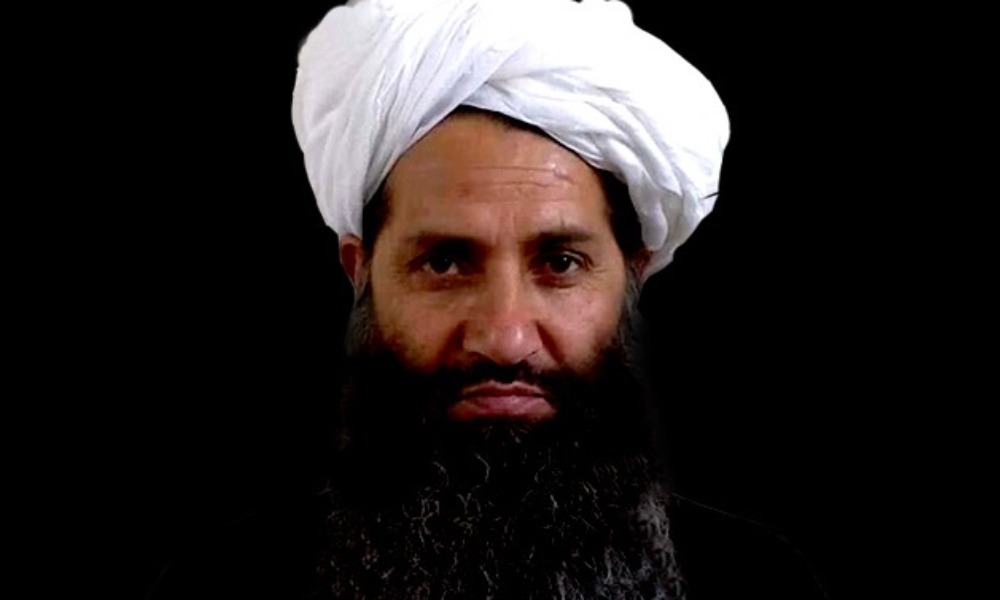
Protection of Islamic system ‘obligatory’: virtue and vice minister Hanafi
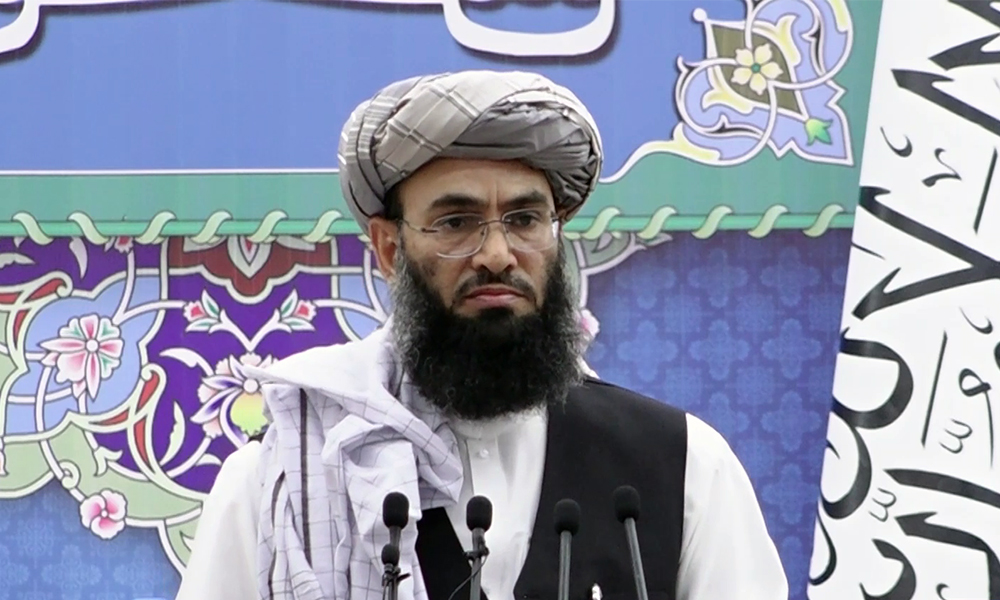
Latest News
Civil war devastated Afghans more than the Soviet invasion, says Fitrat
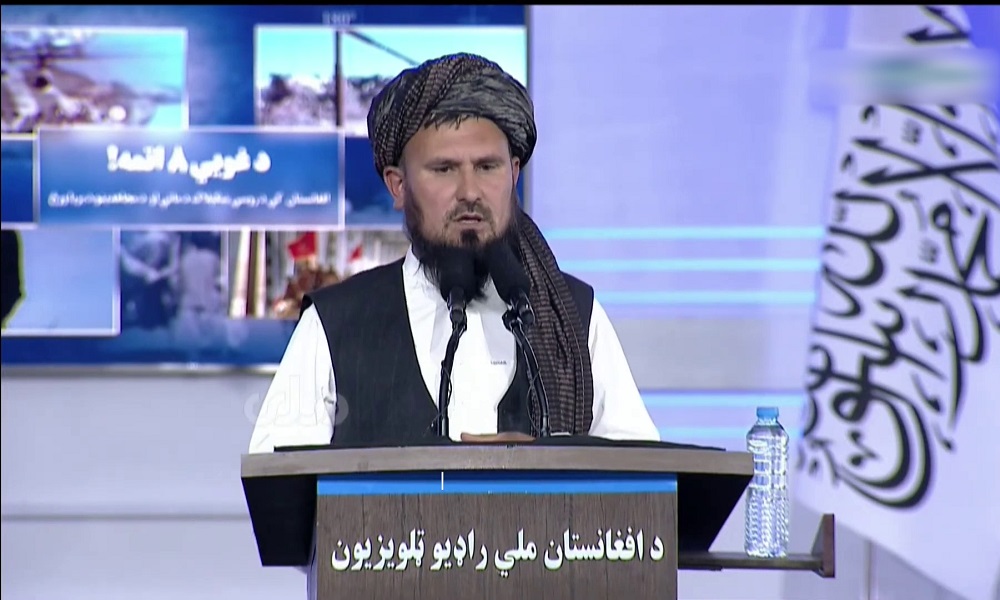
The civil war inflicted greater harm on the people of Afghanistan than the Soviet invasion, Fasihuddin Fitrat, Chief of the Army Staff of the Islamic Emirate, said on Monday
“The Soviet Red Army invasion did not make the Afghan people as miserable as the civil wars and power struggles made,” he said at a ceremony marking the 33rd anniversary of the mujahideen’s victory against the former Soviet-backed regime.
Fitrat warned that if someone is thinking of occupying Afghanistan using those who have fled the country, the Afghan people are ready to fight against them even if takes thousands of years.
“No matter how they impose war on the people of Afghanistan, the people have the courage and heroism,” he said. “Their honor will never allow them to be controlled by someone else. They will fight against them. They have fought for four and a half decades and are ready to fight for thousands more. If anyone thinks of occupying our country, they will fight against them.”
Acting Minister of Borders and Tribal Affairs, Alhaji Mullah Noorullah Noori also stressed that Afghanistan will soon will compete with other countries in political, economic and security sectors.
“The day will come when Afghanistan will compete with the world’s major countries in every field, politically, economically, security,” he said.
Acting Minister of Information and Culture Khairullah Khairkhwa called on the officials of the Islamic Emirate to refrain from “power worship,” warning that it would lead to the collapse of the government.
“If, God forbid, we revive the past and there is power worship here again and we try to increase our influence, the regime will collapse and the people will become divided,” he said.
At the ceremony, the Chief of Staff of Army also stressed the dignified return of refugees from neighboring countries, adding that humiliating them is unacceptable for the Islamic Emirate.
Latest News
Qatar’s Prime Minister meets with Afghanistan’s foreign minister
According to Gulf Times, the two officials reviewed the latest developments in Afghanistan and discussed ways to support the Afghan people.
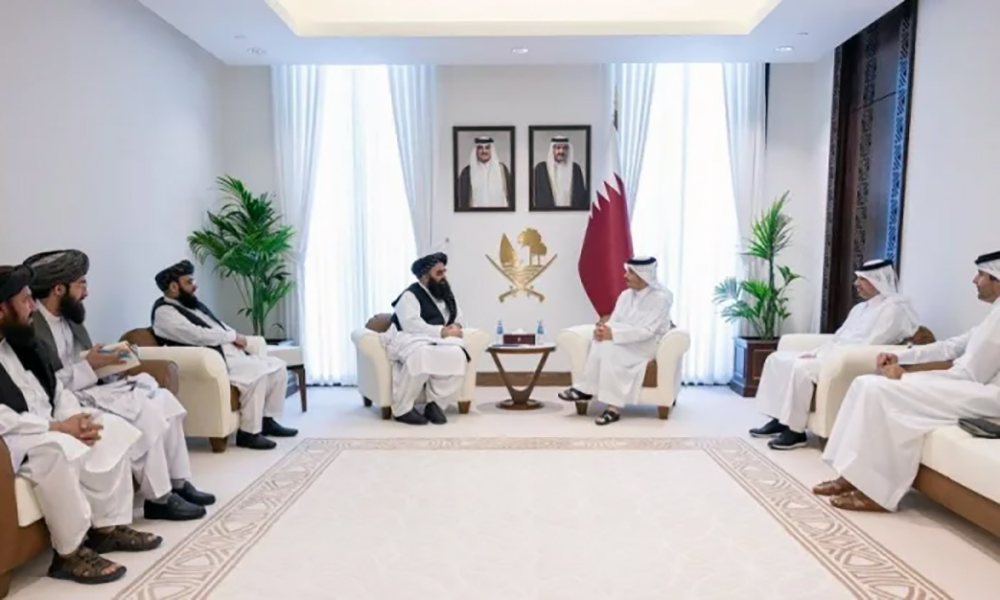
Qatar’s Prime Minister and Minister of Foreign Affairs Sheikh Mohammed bin Abdulrahman bin Jassim Al-Thani met with Afghanistan’s Acting Minister of Foreign Affairs Amir Khan Muttaqi who is currently visiting the country.
According to Gulf Times, the two officials reviewed the latest developments in Afghanistan and discussed ways to support the Afghan people.
Al-Thani emphasized the State of Qatar’s unwavering support for all segments of the Afghan people and its continued efforts to achieve security, stability, prosperity, and a dignified life in Afghanistan.
A source told Ariana News that Muttaqi arrived in Qatar on Sunday. No further details on his trip were given.
Latest News
WFP air services in Afghanistan may be suspended due to funding crisis
According to WFP, the organization urgently needs $10.5 million in funding to continue its relief flights in 2025.
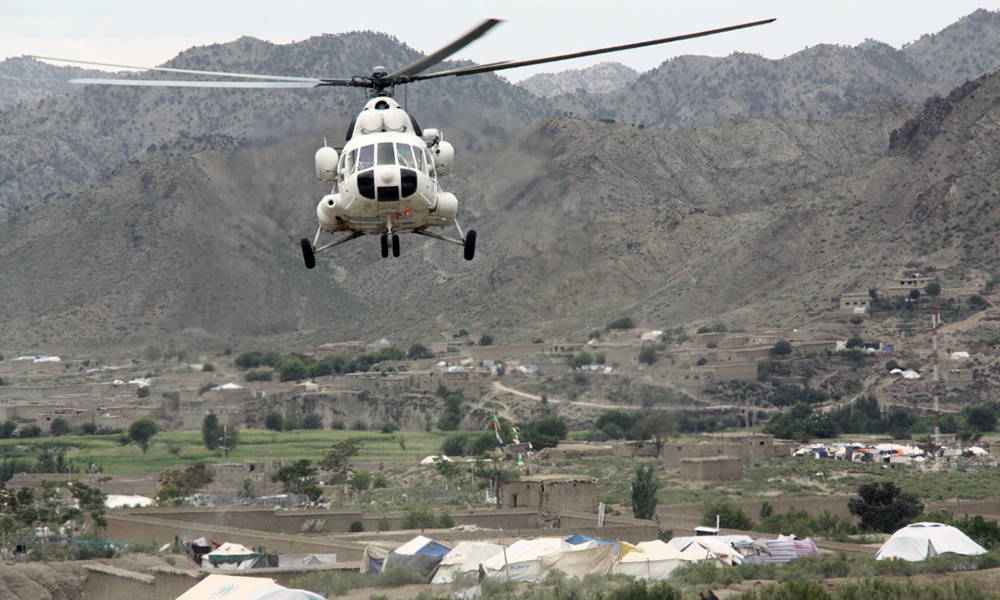
The UN’s World Food Program (WFP) in Afghanistan has announced the possible suspension of its air services in the country due to a severe shortage of funding.
WFP is one of the largest humanitarian organizations in Afghanistan and the air services have played a vital role in transporting humanitarian aid, especially to areas difficult to reach by land.
In a message posted on X, the WFP explained that in the past, when roads were blocked, air services were the only way to deliver aid to remote areas of Afghanistan. This aid included food, medicine, and other essential items that are essential for the survival of millions of people in need in Afghanistan.
According to WFP, the organization urgently needs $10.5 million in funding to continue its relief flights in 2025.
In addition, the WFP stated that humanitarian needs in Afghanistan continue to increase and millions of people across the country are dependent on humanitarian assistance.
WFP stated that if air services are stopped, it will become very difficult, if not impossible, to deliver vital aid to areas that are not accessible by road.
-

 Latest News5 days ago
Latest News5 days agoAWCC activates new site in Nangarhar’s Kuz Kunar district
-

 Latest News5 days ago
Latest News5 days agoTarig Ali Bakheet and Japan’s Deputy Foreign Minister discuss Afghanistan’s situation
-

 Business4 days ago
Business4 days agoPakistan’s deputy PM discusses Trans-Afghan Railway Line project with Uzbek FM
-

 Latest News3 days ago
Latest News3 days agoAfghanistan’s medicine output reaches 900 types: Pharma Union
-

 Latest News4 days ago
Latest News4 days agoAfghan delegation to participate in Iran’s international expo
-

 Latest News4 days ago
Latest News4 days agoWFP appeals for $25 million to help support Afghan returnees amid humanitarian crisis
-
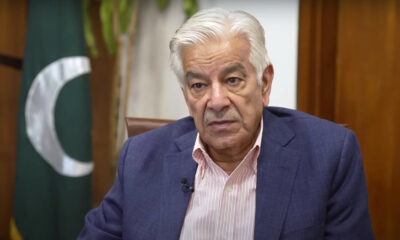
 Latest News3 days ago
Latest News3 days agoTerrorist attacks in Pakistan originate from Afghanistan: Khawaja Asif
-
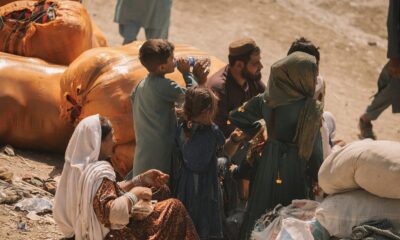
 Latest News4 days ago
Latest News4 days agoRegistered Afghan refugees must return by June 30 or face deportation: Pakistani official










